- { expandedNavigation=true; activeIndex=0; setTimeout(() => document.getElementById('main-nav-link-list')?.children[0]?.children[1]?.focus()) }"> Research landscape
- { expandedNavigation=true; activeIndex=1; setTimeout(() => document.getElementById('main-nav-link-list')?.children[1]?.children[1]?.focus()) }"> Your goal
- { expandedNavigation=true; activeIndex=2; setTimeout(() => document.getElementById('main-nav-link-list')?.children[2]?.children[1]?.focus()) }"> Plan your stay
- { expandedNavigation=true; activeIndex=3; setTimeout(() => document.getElementById('main-nav-link-list')?.children[3]?.children[1]?.focus()) }"> Success stories
- { expandedNavigation=true; activeIndex=4; setTimeout(() => document.getElementById('main-nav-link-list')?.children[4]?.children[1]?.focus()) }"> Our service
- R&D policy framework
- Research infrastructure
- Research funding system
- Universities
- Universities of applied sciences
- Technical universities
- Top universities
- Fraunhofer-Gesellschaft
- Helmholtz Association
- Leibniz Association
- Max-Planck-Gesellschaft
- Academies of sciences and humanities
- Federal research institutions
- State research institutions
- What is R&D in German business?
- Why is collaboration important?
- Which sectors carry out R&D?
- Which are the leading companies?
- How do German businesses compare internationally?
- How is the start-up scene set up?
- How do I start a career?
- Good reasons
- Two ways to get your PhD
- Find your PhD position
- How to apply for a PhD
- Funding programmes
- Funding organisations
- Funding databases
- Job portals
- Career options & dual careers
- Funding & awards
- Potential employers
- Research fields
- Entry and residence
- German money-saving tips
- Cost of living
- Social insurance and health
- Bringing your family
- Information for your partner
- Support for families
- Finding a place to live
- Funding opportunities
- Recognition of professional qualifications
- Counselling
- Latest Thinking
- First-hand experiences from international researchers
- "Meet Your Future You" - series
- On-site consultation
- Our publications
- Research news
- Online talks
- Topics in focus
- { expandedNavigation=true; activeIndex=0; setTimeout(() => document.getElementById('mobile-nav-0')?.children[0]?.children[0]?.focus()) }"> Research landscape
- { expandedNavigation=true; activeIndex=1; setTimeout(() => document.getElementById('mobile-nav-1')?.children[0]?.children[0]?.focus()) }"> Your goal
- { expandedNavigation=true; activeIndex=2; setTimeout(() => document.getElementById('mobile-nav-2')?.children[0]?.children[0]?.focus()) }"> Plan your stay
- { expandedNavigation=true; activeIndex=3; setTimeout(() => document.getElementById('mobile-nav-3')?.children[0]?.children[0]?.focus()) }"> Success stories
- { expandedNavigation=true; activeIndex=4; setTimeout(() => document.getElementById('mobile-nav-4')?.children[0]?.children[0]?.focus()) }"> Our service
Support making RiG more international!
Support making "Research in Germany" more international! Your expertise and commitment are the key to the further development of promoting the German research landscape. We invite you to take part in our online survey and share your valuable experiences and opinions. Duration: 7-10 min.
Please start the survey at the end of your visit.

Deutsche Forschungsgemeinschaft
The Deutsche Forschungsgemeinschaft (German Research Foundation, DFG) is the central self-governing research funding organisation in Germany that brings together higher education institutions and research organisations. It provides financial support for research at higher education and public research institutions in Germany , but does not run any research establishments itself.
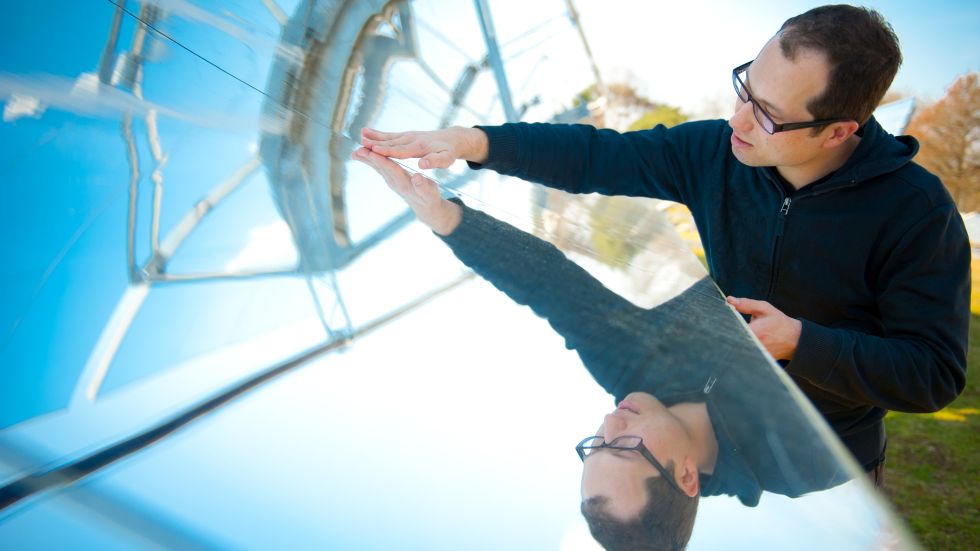
DAAD/Volker Lannert
The DFG funds research based in Germany in all disciplines using a bottom-up approach. That means any researcher affiliated with a German research institution holding a PhD or higher qualification can submit an application without any subject restrictions . DFG programmes offer a wide range of opportunities for various career stages.
This begins with the funding of positions in DFG-funded projects and extends to the funding of an applicant’s own project or research group. The central element of DFG funding is what is known as the Individual Grants Programmes . This programme allows all researchers to submit applications in relation to their own research projects.
International collaborations and international exchange are possible and desired in all DFG funding programmes. Additionally, the DFG provides funds for the initiation of international collaboration and has agreements with specific partner organisations in other countries to fund research projects between German researchers and researchers abroad. Also, specific coordinated programmes focus on international cooperation . They involve not only international research training groups and research consortia, but also DFG support for the European Research Area.
Facts and figures
Approx. 930 employees
In addition to its headquarters in Bonn and the Berlin Office, the DFG also maintains representative offices in India, Japan, Latin America and North America, as well as the Sino-German Center (SGC) in Beijing, a joint venture of the DFG and the National Natural Science Foundation of China
Funding for approx. 32,000 research projects Annual budget: 3.4 billion euros (2021)
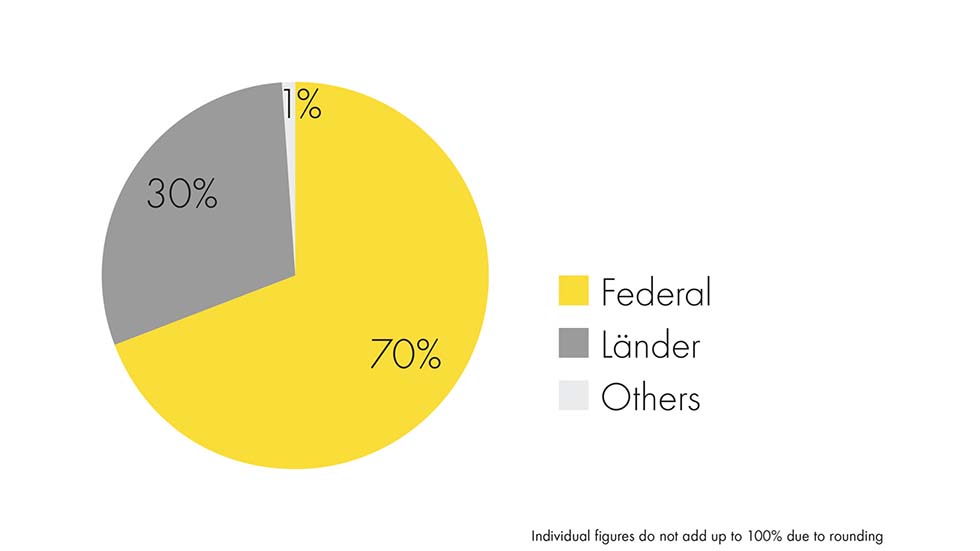
The funds distributed by the DFG on the basis of a science-driven evaluation system come from the Federal Government (70%) and the German states (Länder) (30%) as well as to a small extent from foundations and the European Union. In 2021 its budget totalled 3.4 billion euros.
More information:
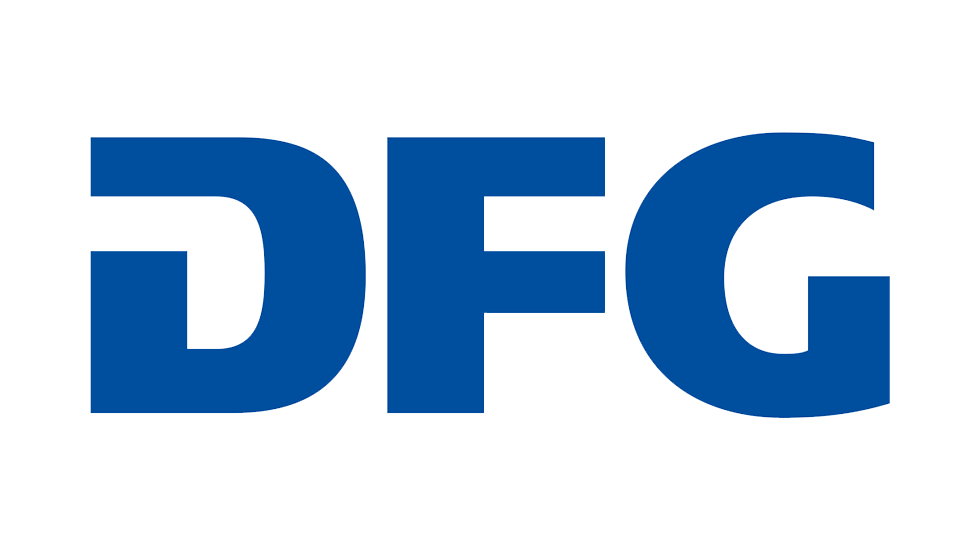
Research Foundation (DFG)
Head Office
- Kennedyallee 40
- +49 228 885-1
- www.dfg.de/en/index.jsp
Funding programmes:
Collaborative research centres.
Collaborative Research Centres offer PhD students opportunities to pursue an outstanding research programme that crosses disciplinary, institutional, departmental and faculty boundaries.
Research Training Groups
Research Training Groups are set up by universities and pursue a focused research programme. They offer a structured PhD programme relating to an innovative, peer-reviewed research topic.
Emmy Noether Programme
Outstanding early career researchers can rapidly qualify for leading positions in science and research or for a university teaching career by heading an independent junior research group and assuming relevant teaching duties.
Initiation of International Collaboration
These grants support international collaboration by enabling eligible German and international researchers and academics to plan partner visits, trips abroad and/or joint workshops with their partners.
Research Grants
Early career and established researchers can pursue a research project on a specific subject within a limited period of time. The programme can provide support for project costs, staff and equipment required to carry out the project.
Heisenberg Programme
Excellent researchers can prepare for a leading position in science and research and spend time working on an advanced research topic at an institution of their choice.
Research Centres
Higher education institutions can set up interdisciplinary research centres with DFG support. Up to six professorships and supplementary junior research groups can be funded in this way.
Finding Scholarships
Welcome to our scholarship database! Here you will find information about our DAAD scholarship programmes for international students and researchers as well as offers from other selected funding organisations .
German Research Foundation (DFG): Research Grant
German Research Foundation (DFG) Kennedyallee 40 53175 Bonn Germany
Contact Tel.: +49 228/885-1 Weblink
Application requirements
Eine Druckversion dieser Ausschreibung (PDF) steht Ihnen in den weiteren Registerkarten (z.B. „Bewerbungsvoraussetzungen“) zur Verfügung.
A print version of this announcement (PDF) is available in the further tabs (e.g. “Application requirements”).
Programme Description
The grants enable scientists and academics to conduct research projects with clearly defined topics and a limited duration. Researchers from any subject working in Germany or at a German research institution abroad who have completed their academic training (usually a doctorate) are welcome to apply for the DFG Research Grants. Only internationally competitive research projects of high scientific quality and originality are eligible for submission. The funding generally covers a maximum period of 3 years. After this, however, candidates can apply for the funding to be renewed.

Target Group
researchers from all disciplines working at a German research institution who have completed their academic training (usually a doctorate)
Academic Requirements
specific to a project (in general, several years)
Scholarship Value
The sponsorship amounts depend on the selected programme modules. You will find detailed information on the benefits in the guidelines on the programmes and modules.
Application Papers
Applications are welcome at any time and should be submitted according to the instructions for project proposals.
Application Deadline
Applications may be submitted at any time.
Application Requirements
Candidates should propose high-quality, innovative and internationally competitive research.
Please select your status and your country to enable you to submit an application
„Country“ is the country in which you are living and from which you are applying. If you come from another country, please contact us to find out whether you are eligible for the programme of your choice. More Information
Graduates are people who already have at least one first academic degree, e.g. Bachelor.
Your status and/or country is not in the list? If your status and/or country is not included in the list, you cannot apply for this scholarship programme. To ensure that only scholarship programmes for which you are eligible to apply are shown, please select your status and your country in the results list (left-hand column).

- Immunological Memory
- Intestinal Microbiota & Immune System
- Health Services Research
- Drug Therapy Safety
- Paediatric rheumatic diseases
- Pathophysiology of Rheumatic Inflammation
- Epidemiology and Health Services Research
- Systems Rheumatology
- Technology platforms and service laboratories
- Leibniz ScienceCampus Chronic Inflammation
- Background and Partners
- Campus discussions
- Leibniz-Inflammation Lectures
- 1. Leibniz Summer School on Chronic Inflammation
- Publications
- Science Awards
- Job Opportunities
- Young Researchers
- Graduate school
- DRFZ Young Talents Fellowship
- Welcome-Center
- Latest News
- DRFZ in the media
- Subscribe to DRFZ NewsFlash
- DRFZ vs SARS-CoV-2
- Media Center
- DRFZ at a glance
- Patients and relatives
- People at the DRFZ
- DRFZ Structures
- The DRFZ in the Leibniz Association
- Public relations at the DRFZ
- Equal opportunities
- Animal Experiments at the DRFZ
- Hasinger Lecture and Mitchison Prize
- Guideline and Regulations
Projects funded by the German Research Foundation – DFG
The German Research Foundation (DFG) is the central self-governing organisation of science in Germany. It funds research projects at universities and other research institutions.
The DFG supports cooperation between researchers at regional and supra regional level in Germany. It supports university research networks with a multidisciplinary research program that focuses on one topic (Collaborative Research Centres – SFBs and Transregional Collaborative Research Centres – TRRs). There are also Germany-wide cooperation networks of individual researchers working on the same topic in an interdisciplinary manner (Priority Programmes – SPPs), Clinical Research Groups – FORs, which focus on clinical research with a specific disease- or patient-oriented research focus, and Equipment Centres to promote the establishment of equipment centre infrastructures, so-called Core Facilities.
The “Forschergruppe” investigates the interaction between metabolism and signal transduction in the regulation of B cells. By investigating immunometabolism, new regulatory mechanisms will be identified that influence B cell reactions. The research focusses on two main aspects: First, how the microenvironment influences B cell function, particularly in immunological niches such as the germinal centre, bone marrow or inflamed kidneys, by studying access to nutrients and oxygen. In a second complementary research focus, the molecular basis of the interplay between signalling and metabolism will be defined.
The DRFZ sub-project focuses on the spatio-temporal dynamics of calcium signalling and metabolism in germinal centre B cells.
PIs at DRFZ Anja Hauser Raluca Niesner
As a member of the Germany-wide consortium National Research Data Infrastructure for Immunology (NFDI4Immuno), the DRFZ will be involved in the establishment of a national immunological research data infrastructure over the next five years, starting in March 2023.
The aim of NFDI4Immuno is to define standards in research data management and to establish a supra-regional storage platform in order to secure research data in a sustainable and quality-assured manner according to the FAIR principles and to make it usable for further utilisation. The FAIR princliples stand for: F indable, A ccessible, I ntero perable, and R e-usable, i.e. the data must be easy to find, data and metadata must be accessible, and the data can be linked to other data. Re-usability for further research must also be guaranteed.
In addition to the DRFZ, the Friedrich Löffler Institute, the Centre for Regenerative Therapies of the Technical University of Dresden, the Charité – Universitätsmedizin Berlin, the University Hospital Essen, the Helmholtz Centre for Infection Research, the University of Tübingen, the DKMS Society and the University Hospital Münster are members of the consortium, which is coordinated by the German Cancer Research Center. Prof. Hyun-Dong Chang will be responsible for project management at the DRFZ, in addition to being co-spokesperson of the consortium.
The NFDI4Immuno is one of 27 NFDI consortia funded by the DFG which aim to make scientific data resources more accessible, which have until now have been mostly decentralised and project-dependent.
PI at DRFZ Hyun-Dong Chang
Link to NFDI4Immuno
The etiological background of Inflammatory Bowel Diseases (IBD: Crohn’s disease, ulcerative colitis) is still poorly understood, in particular the local cellcell interactions. The driving hypothesis behind this new joint initiative is that a dysregulated signal exchange between the epithelium and immune cells and the consequences thereof contribute to the pathogenesis of IBD. The DRFZ focuses on how the crosstalk of intestinal microbiota and immune cells can affect intestinal barrier functions and on how mechanisms of the innate immune system can initiate inflammation or, in contrast, lead to epithelial protection and barrier repair.
PIs at the DRFZ Hyun-Dong Chang , Andreas Diefenbach , Ahmed Hegazy , Andrey Kruglov , Andreas Radbruch , Chiara Romagnani , Antigoni Triantafyllopoulou
The priority programme “Physics of Parasitism” defines a new frontier in this field, namely the physics of parasites interacting with their hosts. “We ultimately aim to elaborate a comparative and quantitative framework of the physical constraints and mechanical forces acting at the dynamic parasite-host interfaces. We will measure the material properties and mechanics of parasites in their niches, uncover the physical basis of their locomotion, and determine the mechanical and physical basis for their attachment.” The priority programme uniquely combines expertise from parasitology, molecular cell biology, experimental and theoretical physics, mathematics and simulation science.
The DRFZ is involved with the following projects:
Locomotion of parasitic nematodes in the gut: movement in viscoelastic mucus intertwined with the metabolic activity of the nematodes ( Raluca Niesner in collaboration with Susanne Hartmann, FU Berlin)
Physical principles of parasite-host interactions in Giardia muris infection ( Anja Hauser in collaboration with Sebastian Rausch, FU Berlin)
DFG GEPRIS SPP 2332
The Corona pandemic has led to changes in the medical care of children and adolescents. Children and adolescents with a chronic disease are particularly vulnerable, as they are dependent on regular health services on the one hand and at higher risk for a severe course of COVID-19 on the other hand. In an interdisciplinary research program, the short- and long-term consequences of the pandemic on these children and adolescents will be examined with respect to changes in medical care as well as their physical and mental health. We focus on children and adolescents (aged up to 18 yrs) with three common chronic diseases, type 1 diabetes, obesity, and rheumatic diseases. Patients and their parents will be asked about their physical and mental health, their use of health services and their COVID-19-related stress as part of their participation in the three large established patient registries: diabetes prospective follow-up registry (DPV; N=77,413), prospective registry for overweight and obese children and adolescents (APV; N=124,130) and national pediatric rheumatology database (N=14,000). The already existing health parameters in the registers will be extended by patient reports on their psychosocial situation by a corona-specific questionnaire. In addition, the psychosocial resources and risk perceptions of children and their parents will be recorded and their influence on the use of health services as well as on their physical and mental health will be analyzed. The prospective design allows the analysis of interindividual differences and its influencing factors. By accessing already existing prospectively collected data sets of the three patient registers, changes in the medical care and health status of the children can be examined over time, i.e. before and during the pandemic. In addition, an extended psychosocial survey is carried out in a subsample. We will consecutively include all children and adolescents who take part in their routine examinations within one year, have already agreed to participate in the patient register and gave their informed consent to an additional survey. Parents provide information for children under the age of 12, for older children self-reports will also be collected. The overall aim of the project group is to identify and evaluate the medical care situation and the physical and mental health of children and adolescents with chronic diseases (main endpoints) as well as their interactions during the pandemic. This allows identifying differences and commonalities in the effects of the pandemic on the care and health of children of different diseases. Recommendations for further care practices can be derived.
PI at the DRFZ Kirsten Minden
The Collaborative Research Centre CRC 1444 “Directed Cellular Self-Organisation for Advancing Bone Regeneration” aims to reveal the processes involved in bone regeneration especially in aged individuals where bone healing is impaired. Bone regeneration is also altered in people with chronic inflammation or metabolic disorders. Understanding the underlying principles is crucial for a personalized approach for treatment.
PIs at the DRFZ Andreas Diefenbach , Anja Hauser , Raluca Niesner , Julia Polansky , Antigoni Triantafyllopoulou
The research group investigates the mechanisms of bone and cartilage regeneration after damage. In particular, the early immune response and restoration of mechanical competence with regard to changes during ageing. In sub-project 7 conducted at the DRFZ, osteo-immunological interactions in the course of fracture healing are analysed using longitudinal intravital imaging.
PIs at the DRFZ: Anja Hauser and Raluca Niesner
The DFG Priority Programme SPP 1937 Innate Lymphoid Cells is a national, interdisciplinary priority programme for the structured funding of research groups conducting joint research in the new scientific field of the Innate Lymphoid Cells (ILCs).
ILCs are a group of lymphocytes of the innate immune system discovered recently. They are important effector cells in the immune defense of infections and tumors. However, they are also involved in the pathogenesis of various inflammatory diseases such as chronic inflammatory bowel diseases, rheumatoid arthritis etc..
It is now also known that ILCs are tissue-resident cells that strongly impact on the biology of various organs and tissues.
Three research groups at the DRFZ are investigating the interaction between ILCs and the surrounding tissue in order to gain an understanding of the development of chronic inflammatory diseases.
PIs at the DRFZ: Andreas Diefenbach, Chiara Romagnani, Anja Hauser
The main goal of NeuroMAc is to better understand the molecular mechanisms of myeloid cell diversity in the CNS and the interactions of microglia with neurons and other glial cells during development, health and perturbation.
The TRR167 aims to define common and distinct genetic pathways for the development of different sets of myeloid cells in the brain, to identify the cellular mechanisms of myeloid cell function during the onset, resolution and recovery of disease in models of neurodegeneration and neuroinflammation and to investigate the therapeutic potential of myeloid cells in preclinical models of CNS diseases.
PI at DRFZ Antigoni Triantafyllopoulou
Website TRR167
Since 2010, the TRR 84, aims to decipher lung-specific mechanisms and cellular interactions during infections and inflammations in order to develop new therapeutic concepts for the treatment of pneumonia. The TRR84 has established a scientific network that includes medical and basic science university partners, several basic research institutes, the Robert Koch Institute and two Max Planck Institutes.
PIs at DRFZ Antigoni Triantafyllopoulou Andreas Diefenbach
Mass cytometry (CyTOF technology) is a new technology that captures the complexity of cellular systems in unprecedented detail and promises significant contributions in biomedical diagnostics and research. The DRFZ initiated the establishment of the nationwide German Mass Cytometry Network GERMANET for mass cytometry in Germany, which is now being continued in the German Mass Cytometry Alliance. The aim is to bundle the expertise of all German mass cytometry centres and to strategically expand the network.
PI at the DRFZ: Henrik Mei
Expired projects in 2020
The aim of the Transregional Collaborative Research Centre TRR130 B cells: Immunity and Autoimmunity is to gain a better understanding of the role of B lymphocytes in physiological immune reactions and in chronic inflammatory diseases. The DRFZ contributes to this consortium with its expertise in the field of memory B lymphocytes, especially memory plasma cells, in a biomedical and clinical context. Furthermore, it provides optical technology development, i.e. flow cytometry and intravital microscopy.
PIs at the DRFZ: Andreas Radbruch (Co-Speaker), Hyun-Dong Chang , Thomas Dörner , Anja Hauser , Falk Hiepe/Tobias Alexander , Mir-Farzin Mashreghi , Henrik Mei , Raluca Niesner , Margitta Worm
Auch interessant für Sie
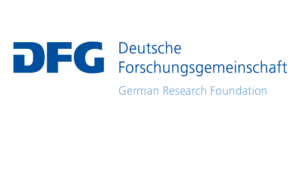
- Higher Education and Research
DFG – funding research
The German Research Foundation, Europe’s largest research-funding organisation, supports roughly 30,000 projects a year.
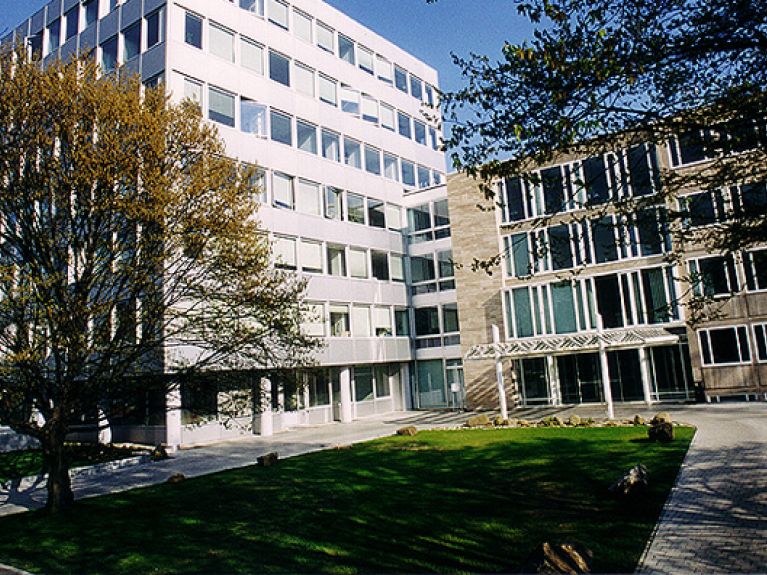
With only 750 employees, the German Research Foundation (DFG) is dwarfed by Germany’s other research organisations. Yet, appearances can be deceptive. The DFG is not only the self-governing organisation for science and research in Germany; it also plays a major role in managing German research as Europe’s largest research funder. If, for example, an archaeologist wants to excavate a site abroad or a physicist wants to investigate a new theory but funding is unavailable from the respective institute, the DFG can fill the gap after giving the idea appropriate scrutiny. The DFG can not only fund the procurement of an expensive piece of equipment, but also support researchers’ travel to congresses or visits to colleagues. The DFG also brings researchers from different institutions and disciplines together in joint projects organised as collaborative research centres. In addition to its headquarters in Bonn, the DFG is now also represented worldwide with offices in China, Japan, India, Russia and North and Latin America.
Related content

- Alliance of Science Organisations in Germany
- Statutory Bodies
- General Assembly
- Executive Committee
- Joint Committee
- Review Boards
- Liaison Officers
- Head Office
- Contacts A-Z
- Programme Contacts
- Berlin Office
- Executive Board
- International Cooperation
- European Research Policy
- International Activities
- Representation Abroad
- News from the Offices Abroad
- Research in Germany
- Funding Opportunities
All Funding Programmes
Scientific prizes.
- How the DFG Supports Research Careers
- Calls for Proposals
- Funding in an International Context
- Cooperation with Individual Countries and Regions
- Research Vessel
- Things to Know about the Proposal and Funding Process
- The elan Portal
- Individual Grants Programmes – A How-To Guide
- Forms and Guidelines
- Final reports
- Subject Area Structure and Interdisciplinarity
- How does the DFG decide on funding proposals?
- Special Funding Initiatives
- Excellence Strategy
- National Research Data Infrastructure
- Funding for UAS
- Knowledge Transfer
- Refugee Researchers
- Clinician Scientist Programmes
- Artificial Intelligence Funding Initiative
- Basics and Topics
- Basics and Principles of Funding
- Equity and Diversity
- Good Research Practice
- Handling of Research Data
- Handling of research software
- Handling Security-Relevant Research
- Portal Research Integrity
- Developments within the Research System
- Digital Turn
- Academic Publishing
- Open Access
- Relevance of Diversity in Research
- Citizen Participation
- Sustainability Guide for Research Processes
- Scientific Commissions
- Health Hazards
- Food Safety
- Animal Research
- Genetic Research
- Clinical Research
- Biological Diversity
- Transformation of Agricultural and Food Systems
- Pandemic Research
- German Committee for Sustainability Research
- Funded Projects
- Prizewinners
- Communicator Award
- Copernicus Award
- Europa Prize
- Ursula M. Händel Prize
- Gottfried Wilhelm Leibniz Prize
- Heinz Maier-Leibnitz Prize
- Albert Maucher Prize in Geoscience
- Bernd Rendel Prize
- von Kaven Award
- Current Projects and Programmes
- Collaborative Research Centres
- Research Training Groups
- Priority Programmes
- Research Units
- Clinical Research Units
- Centres for Advanced Studies in Humanities and Social Sciences
- DFG Research Centres
- Clusters of Excellence
- Research Information Systems
- News and Current Topics
- Press Releases
- Information for Researchers
- Press Contact
- Facts and Figures
- Annual Report
- Funding Atlas
- Evaluation, Studies and Monitoring
- Publications
- Magazine „german research"
- Statements and Position Papers
- Publications of the Commissions
- Publications by DFG Divisions
- Statistical Documentation
- Information Material
Information on DFG funding opportunities and programme forms and guidelines
Structure of Funding Portfolio
- F orms and Guidelines
- Communicator Award Category: Prizes
- F orms an Guidelines
Proposal submitted by Individuals
Funding focus: investigators, funding focus: themes, funding focus: forum, funding focus: infrastructure, proposal submitted by institutions.
The DFG funding portfolio includes a wide range of funding instruments for research projects and research infrastructures. A distinction is made between funding for individual researchers and funding for institutions, according to the requirements and objectives of the research to be conducted. Individuals can also be nominated for research prizes.
Most of the DFG’s funding instruments are designed to support research projects. These instruments are grouped into seven funding focuses (an eighth funding focus encompasses prizes). Grants centre on either research career development, or the research theme and the way in which it is addressed or the infrastructures required to address it. As far as possible, funding opportunities are aligned with the needs of researchers and are designed to reflect the research approaches used in the various academic research disciplines and communities. They also enable or facilitate diverse forms of cooperation between institutions, locations and disciplines. Funding awarded to research institutions also helps to enhance their core areas and structures from an academic and infrastructural standpoint.
Cookie-Settings
Cookie settings.
Our website uses cookies that are strictly necessary for its technical functionality and cookies for the collection of statistical information (analytical cookies).
Statistical analysis of how our online service is used involves use of the “Matomo” analytics service on our website. Analytical cookies help us to improve our site and to optimise it in the interest of our users. Matomo uses cookies. These are small text files that are stored on your end device and enable us to analyse your use of our website. Evaluation of how visitors use our website is conducted in an anonymised form, which merely involves recording of your IP address in an abbreviated format. This means that we can’t identify you as a user. We do not pass on your data to third parties. We store the collected information for 13 months and then delete it.
For further information on our procedures, the terminology used (such as “cookies” and “statistics”) and your rights, please refer to our Data Protection Notice . You can use the Cookie setting s to revoke your consent to the processing of your data at any time.

IMAGES
VIDEO
COMMENTS
Research grants enable individuals who have completed their academic training to conduct at any time research projects with clearly defined topics and durations, regardless of the subject. Information about the Programme
Here you will find information on individual funding, i.e. funding programmes for individual projects or persons, as well as tips on how to compile your proposal. The information focuses on the following four programmes: Walter Benjamin Programme, Emmy Noether Programme, Heisenberg Programme and Individual Research Grants Programme. Much of the ...
How does the DFG decide on funding proposals? Special Funding Initiatives. Excellence Strategy; National Research Data Infrastructure; Funding for UAS; Knowledge Transfer; Refugee Researchers; Clinician Scientist Programmes; Artificial Intelligence Funding Initiative
DFG research funding. Here you will find all you need to know about DFG funding programmes. www.dfg.de > Research Funding. The grant enables scientists and scholars to realise a research project on a defined subject within a limited period of time.
The Deutsche Forschungsgemeinschaft (German Research Foundation, DFG) is the central self-governing research funding organisation in Germany that brings together higher education institutions and research organisations.
Researchers from any subject working in Germany or at a German research institution abroad who have completed their academic training (usually a doctorate) are welcome to apply for the DFG Research Grants.
The German Research Foundation (German: Deutsche Forschungsgemeinschaft [ˈdɔʏtʃə ˈfɔʁʃʊŋsɡəˌmaɪnʃaft]; abbr. DFG [ˌdeːʔɛfˈɡeː]) is a German research funding organization, which functions as a self-governing institution for the promotion of science and research in the Federal Republic of Germany.
The German Research Foundation (DFG) is the central self-governing organisation of science in Germany. It funds research projects at universities and other research institutions. The DFG supports cooperation between researchers at regional and supra regional level in Germany.
The German Research Foundation, Europe’s largest research-funding organisation, supports roughly 30,000 projects a year. With only 750 employees, the German Research Foundation (DFG) is dwarfed by Germany’s other research organisations. Yet, appearances can be deceptive.
The DFG funding portfolio includes a wide range of funding instruments for research projects and research infrastructures. A distinction is made between funding for individual researchers and funding for institutions, according to the requirements and objectives of the research to be conducted.